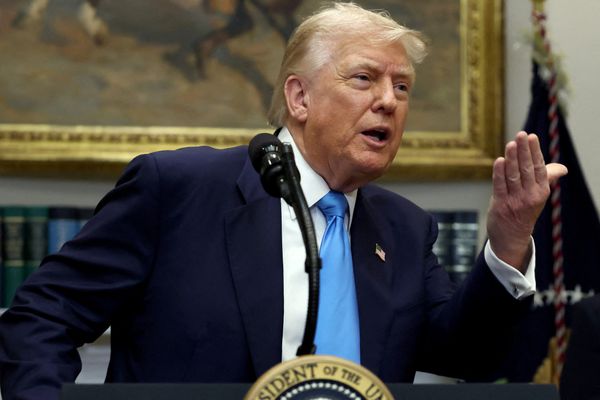WASHINGTON, July 31 — United States (US) appeals court judges have sharply questioned on whether President Donald Trump’s tariffs were justified by his emergency powers, after a lower court said he exceeded his authority with sweeping levies on imported goods.
On Wednesday, the US Court of Appeals for the Federal Circuit in Washington, DC, is considering the legality of “reciprocal” tariffs that Trump imposed on a broad range of US trading partners in April, as well as tariffs imposed in February against China, Canada, and Mexico.
In hearing arguments in two cases brought by five small US businesses and 12 Democratic-led US states, judges pressed government lawyer Brett Shumate to explain how the International Emergency Economic Powers Act (IEEPA), a 1977 law historically used for sanctioning enemies or freezing their assets, gave Trump the power to impose tariffs.
Trump is the first president to use IEEPA to impose tariffs.
“IEEPA does not even say tariffs, does not even mention them,” one of the judges said.
Shumate said that the law allows for “extraordinary” authority in an emergency, including the ability to stop imports completely. He said the IEEPA authorises tariffs because it allows a president to “regulate” imports in a crisis.
The arguments, one day before Trump plans to increase tariff rates on imported goods from nearly all US trading partners, mark the first test before a US appeals court of the scope of his tariff authority.
The President has made tariffs a central instrument of his foreign policy, wielding them aggressively in his second term as leverage in trade negotiations and to push back against what he has called unfair practices.
Trump has said the April tariffs were a response to persistent US trade imbalances and declining US manufacturing power.
He said the tariffs against China, Canada, and Mexico were appropriate because those countries were not doing enough to stop illegal fentanyl from crossing the US' borders. The countries have denied that claim.
“Tariffs are making America GREAT & RICH Again. To all of my great lawyers who have fought so hard to save our Country, good luck in America’s big case today,” Trump wrote in a social media post on Thursday.
The states and businesses challenging the tariffs argued that they are not permissible under IEEPA and that the US Constitution grants Congress, and not the president, authority over tariffs and other taxes.
The case is being heard by a panel of all of the court’s active judges, eight appointed by Democratic presidents and three appointed by former Republican presidents. The timing of the court's decision is uncertain, and the losing side will likely appeal quickly to the US Supreme Court.
Trade negotiations
Tariffs are starting to build into a significant revenue source for the federal government, with customs duties in June quadrupling to about US$27 billion (RM115.1 billion), a record, and through June have topped US$100 billion (RM426.5 billion) for the current fiscal year. That income could be crucial to offset lost revenue from Trump's tax bill, which was passed into law earlier this month.
But economists say the duties threaten to raise prices for US consumers and reduce corporate profits. Trump's on-again, off-again tariff threats have roiled financial markets and disrupted US companies' ability to manage supply chains, production, staffing, and prices.
Oregon's Attorney-General Dan Rayfield, whose state is one of several challenging the levies, said the tariffs were a "regressive tax" that is making household items more expensive.
On May 28, a three-judge panel of the US Court of International Trade sided with the Democratic states and small businesses that challenged Trump. It said that the IEEPA did not authorise tariffs related to longstanding trade deficits.
The Federal Circuit has allowed the tariffs to remain in place while it considers the administration’s appeal.
The case will have no impact on tariffs levied under more traditional legal authority, such as duties on steel and aluminium imports.
The President recently announced trade deals that set tariff rates on goods from the European Union and Japan, following smaller trade agreements with the United Kingdom, Indonesia, and Vietnam.
Trump’s Department of Justice has argued that limiting the President's tariff authority could undermine ongoing trade negotiations, while other Trump officials have said that negotiations have continued with little change after the initial setback in court.
Trump has set an August 1 date for higher tariffs on countries that do not negotiate new trade deals.
There are at least seven other lawsuits challenging Trump’s invocation of IEEPA, including cases brought by other small businesses and the state of California.
A federal judge in Washington, D.C., ruled against Trump in one of those cases, and no judge has yet backed Trump’s claim of unlimited emergency tariff authority.






